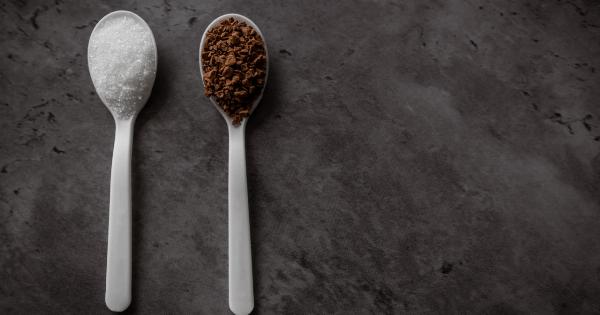Teenagers go through significant physical and mental transformations during their adolescence. As they navigate various challenges and demands, maintaining good health becomes crucial.
One aspect that plays a role in their overall well-being is their consumption of caffeine. Caffeine, commonly found in coffee, tea, energy drinks, and soda, is often favored by teenagers due to its stimulating effects on the central nervous system.
However, while caffeine can provide short-term benefits, it is essential to understand the potential long-term effects it may have on teens’ health.
The Role of Caffeine
Caffeine acts as a stimulant, affecting the brain and nervous system. It increases alertness and temporarily wards off drowsiness, making it a popular choice for those seeking a quick boost of energy.
In moderate amounts, caffeine can improve cognitive performance, enhance focus, and even elevate mood. Teenagers, in particular, may turn to caffeine to combat feelings of fatigue caused by demanding academic schedules, extracurricular activities, and social commitments.
The Impact on Sleep
One significant concern regarding caffeine consumption among teenagers is its effect on sleep. The stimulating properties of caffeine can interfere with the natural sleep cycle, leading to sleep deprivation or poor sleep quality.
Many teens already struggle to get enough sleep due to early school start times and excessive screen time, and adding caffeine into the mix can exacerbate these challenges. Lack of sleep can have far-reaching consequences on physical and mental health, including impaired cognitive function, increased risk of accidents, mood disturbances, and compromised immune system.
Physical Health Effects
While a moderate caffeine intake is generally considered safe for adults, teenagers may be more susceptible to its potential negative effects due to their developing bodies.
Excessive consumption of caffeine can lead to various physical health issues, such as increased heart rate, irregular heart rhythm, elevated blood pressure, and even dehydration. Additionally, consuming caffeine-rich beverages may inadvertently replace other essential nutrients in teens’ diets, as they may choose these beverages over healthier options like water, milk, or natural fruit juices.
Bone Health Concerns
Another area of concern regarding caffeine consumption among teenagers is its potential impact on bone health.
Adequate calcium intake during adolescence is crucial for the development of strong and healthy bones, helping to prevent conditions like osteoporosis later in life. However, excessive caffeine intake can interfere with calcium absorption, increasing the risk of weakened bones and fractures. This is particularly concerning for teenage girls, as they are more prone to osteoporosis than boys.
Behavioral and Mental Effects
Alongside physical health effects, excessive caffeine consumption can also contribute to behavioral and mental challenges for teenagers.
Due to its stimulating properties, high doses of caffeine may worsen symptoms related to anxiety disorders or attention deficit hyperactivity disorder (ADHD). It can lead to restlessness, irritability, nervousness, and difficulty concentrating.
Furthermore, sudden withdrawal from caffeine can cause symptoms of withdrawal, including headaches, fatigue, and mood swings, putting additional strain on teenagers already dealing with the stresses of adolescence.
Interaction with Medications and Substance Use
It is important for teenagers to be mindful of the potential interactions between caffeine and medications they may be taking.
Caffeine is known to interact with certain medications, such as those prescribed for ADHD or mood disorders, altering their effectiveness or increasing the risk of side effects. Additionally, excessive caffeine consumption may contribute to substance abuse or dependence, as it can become a habit-forming substance for some individuals.
Safe Levels of Caffeine Consumption
While excess caffeine consumption can have detrimental effects on teen health, it is important to note that moderate consumption can still be considered safe.
Guidelines suggest that teenagers should limit their daily caffeine intake to no more than 100 milligrams (mg), roughly equivalent to a single cup of coffee. However, it is important to remember that caffeine content can vary greatly among different beverages and products. It is crucial for teenagers to be aware of their overall caffeine intake and make informed choices.
Healthy Alternatives and Lifestyle Choices
Encouraging healthy alternatives and lifestyle choices can play a significant role in promoting teen health while minimizing excessive caffeine consumption.
Teenagers should prioritize regular physical activity, adequate sleep, and a balanced diet to maintain their overall well-being. Hydration through water and other non-caffeinated beverages is important for maintaining optimal health.
Education about the potential effects of excessive caffeine consumption can help teenagers make informed decisions and develop healthy habits that will benefit them in the long run.
Parental and Educator Guidance
Parents and educators can also play an essential role in guiding teenagers towards healthier habits. Open and honest discussions about the potential risks and benefits of caffeine consumption can help teenagers make responsible choices.
Parents can support their teenagers by modeling healthy behavior and providing alternative options to caffeine-rich beverages. Educators can raise awareness through health education programs, emphasizing the importance of sleep, stress management, and balanced nutrition.
Conclusion
Teen health is a complex topic, and understanding the effects of caffeine consumption is just one aspect. While caffeine can provide temporary benefits, its excessive intake among teenagers can lead to various health concerns.
From sleep disruption and physical health effects to impacts on bone health, behavior, and mental well-being, excessive caffeine consumption can have long-term consequences. It is crucial for teenagers to be aware of their caffeine intake, prioritize healthy alternatives, and seek guidance from trusted adults to maintain their overall well-being.





























